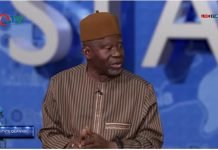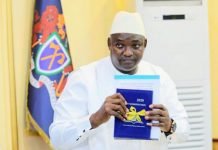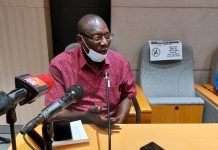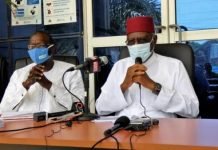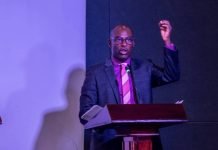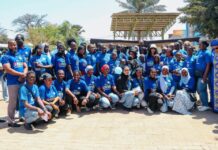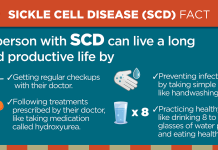By Banna Sabally
On 22 and 23 October, 2024, The Association of Non-Governmental Organizations (TANGO) with support from the United Nations Development Programme (UNDP), held a training on “Advocacy for Civil Society, Inter-Party Committee members and other Stakeholders to Effectively Lobby For Quota Systems and other Supportive Policies in Promoting Women Political Participation and Leadership.”
The objective of the project is to contribute towards building the capacities of stakeholders to advocate for quota systems and engage communities with positive messages on the importance of women leadership and decision making.
The Gambian population is largely female dominated. The gender represents more than half of the population and also comprise the majority of all Gambian registered voters by more than half. Their pivotal contribution to the democratization process has shaped the country’s growth and development since independence.
However, despite the visible important role they play, decision-making levels in the country remain largely male-dominated. As of August 2024, only two (2) out of the Twenty-three (23) executive arm of government are members are women: Fatou Kinteh, Minster of Gender, Children and Social Welfare and Rohey John Manjang, Minister of Environment, Climate Change and Natural Resources.
In the April 2022 legislative elections, only eight (8%) percent of candidates were women. Only Three (3) out of the nineteen (19) women who stood were elected and only one(1) of those represented a political party, the other Two (2) being independent candidates.
Women Representation in Elective and Non-elective Bodies
Meanwhile, despite this low representation of women at the local government level, women currently made up 545,318 (56.68%) out of 962,157 registered voters in the Gambia and 416,839 men (43.32%).
The percentage highlights the importance of women in deciding the outcome of the presidential election. While having that ultimate power to decide election results, political parties hardly put up female candidates in their stronghold areas, this is largely attributed to sociocultural myths that women are incapable of handing leadership roles in the face of the men.
In the local government level, only Banjul City Council is headed by a woman out of the eight (8) area councils in the Gambia. The rest of the council are all headed by men. And at the council level, according to results obtained from the seven (7) area councils, these are the statistics of women representation in the decision making body:
- Only three (3) out of the fourteen (14) representatives in the Banjul City Council (BCC) are women. This includes the Mayor, one elected councilor and one nominated.
- Kanifing Municipal Council (KMC) has seven (7) women in the chamber of the twenty-six (26). Four (4) of the seven (7) female councilors are elected and three (3) are nominated members of the council.
- Brikama Area Council (BAC), which is largest and most densely populated area council in the Gambia, has only nine (9) women councilors. Four (4) are elected and five are nominated members.
- Janjanbureh Area Council has twelve (12) ward seats for councillors and three (3) nomination. However, only one (1) woman is elected and one (1) is nominated making the total number (2).
- Basse Area Council has four (4) female councilors; one elected and three (3) nominated.
- Mansakoko Area Council has three (3) women and two are elected.
- At the village level, there are 1,887 Alikalos (chiefs) out of whic only 13 are female.
While these numbers are low, women are often involved in their communities and grassroots development when given the opportunity to serve.
Efforts to Improve Women Representation
In 2021, women groups including the civil society gender platform came together to create a constitutional amendment bill to improve significantly, the number of women representation especially in the legislative body. The bill was co-sponsored by Fatoumatta Njai, the National Assembly member for Banjul South.
The bill proposes increasing the total number of seats in The Gambia’s National Assembly from 58 to 71, reserving 16 seats for women assembly members. Of these, 14 would be elected seats and two would be appointed by the President. However, efforts failed when the bill was thrown out of parliament because it failed to get the required number of quorum to proceed to the next stage of the parliamentary lawmaking process.
WOBIPC
On 16 October, 2021, the Women’s Branch of the Inter-Party Committee (WOBIPC) was established to increase women’s participation and representation in national and local politics. It is co-chaired by Fatou Jallow (APRC) and Fatou Sallah (PDOIS) and their “focus is to sensitize and encourage women to get involved in politics and to vote for their counterparts irrespective of our political differences.
“We also encourage men to vote for women. Since independence, women are often used as mobilizers, cooking and cheering during political engagements. However, since the establishment of WOBIPC, we have seen some progress towards the inclusion of women in strategic spaces such as political debates and in decision making, a transformation we intend to keep promoting.”
Legal Framework on Women’s Rights
In the quest to improve women rights and the core values of democracy in the Gambia, the 1997 Constitution and other relevant laws, including the Women’s Act 2010 have general provisions to support women’s political participation and representation. The Gambia is also one of few countries in Africa that have enacted specific legislation to domesticate the provisions of both the CEDAW and the Maputo Protocol. This legal instruments promote the rights of women to participate in the political and decision-making processes.
The Women’s Act, 2010 gives women the right to per-take in decision making processes with freedom from all of forms of discrimination. The act also emphasized that women shall be accorded full and equal dignity with men.
Also, in the Maputo Protocol, Article 9(1) mandates that political parties take specific positive actions to promote participative governance and the equal participation of women in politics through affirmative actions, enabling national legislation, and other measures.
